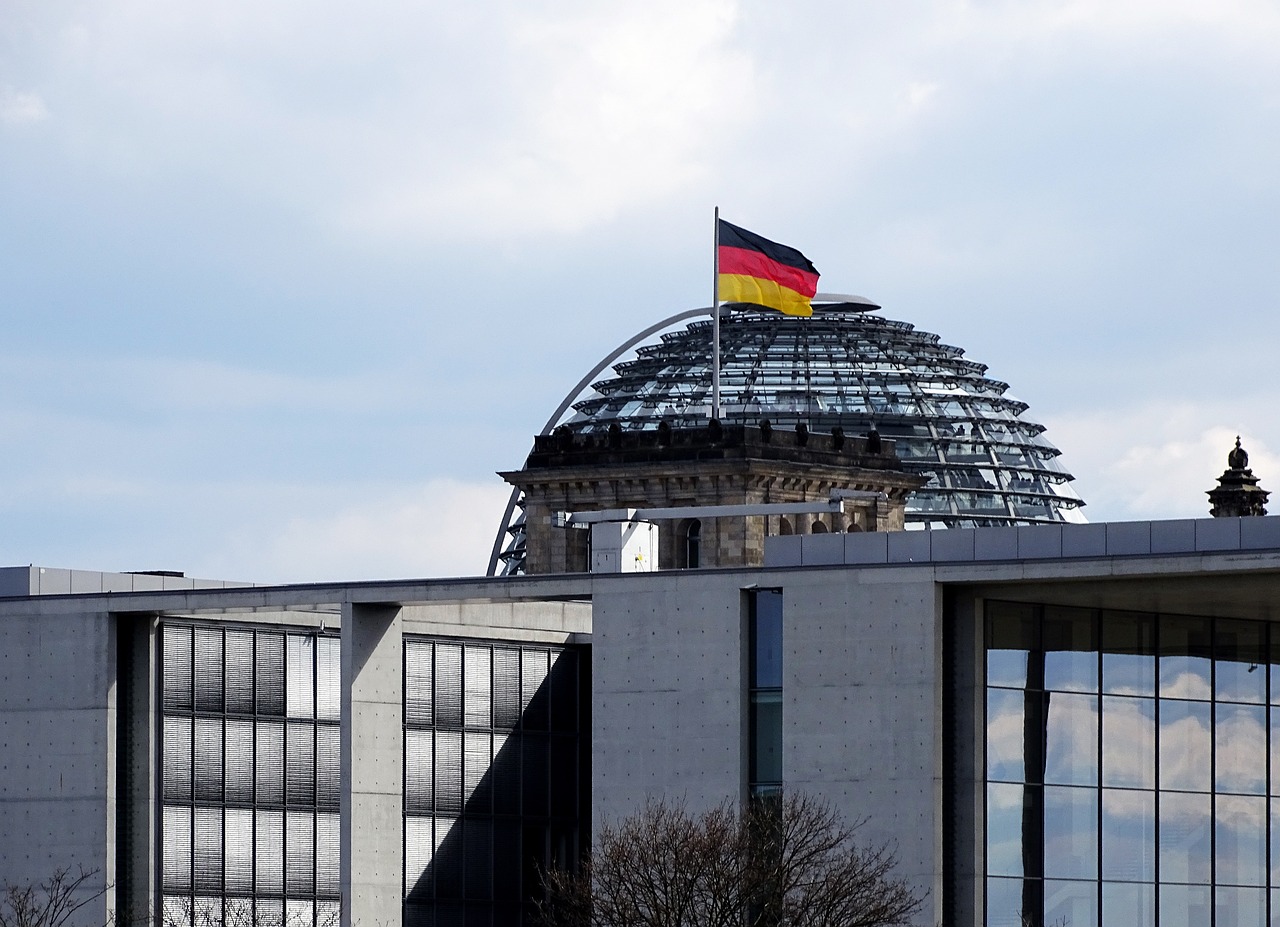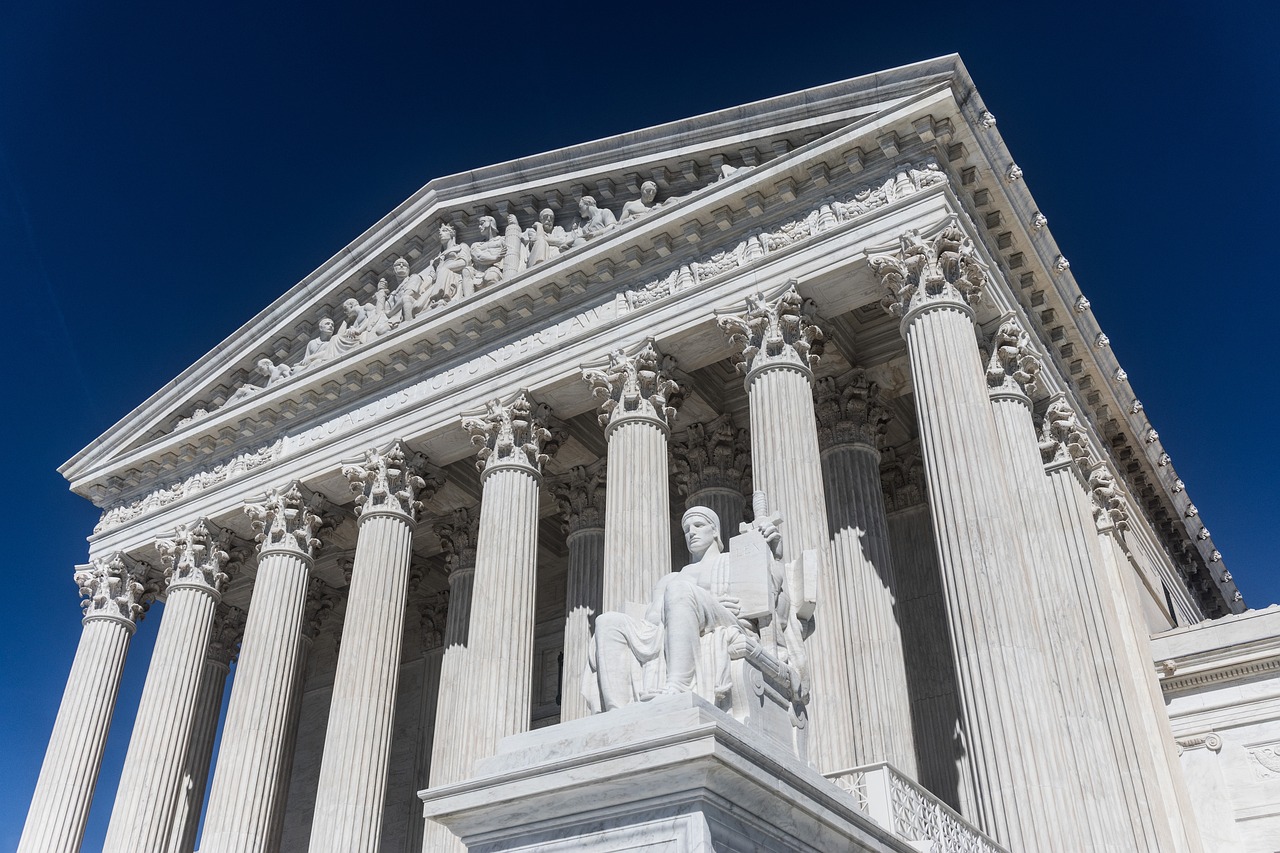The Role of Governments in Enforcing Heritage Protection Laws
The role of governments in enforcing heritage protection laws is paramount in safeguarding our cultural legacy for present and future generations. Governments around the world play a crucial role in creating and implementing legislation to protect heritage sites from threats such as urbanization, development pressures, and environmental degradation.
By enacting laws and regulations, governments establish a framework for the preservation of cultural heritage, ensuring that these sites are respected and maintained. Through enforcement mechanisms, authorities monitor compliance with heritage protection laws, taking action against any unauthorized activities that may endanger the integrity of these significant landmarks.
Moreover, governments collaborate with international organizations and other nations to promote the conservation of heritage sites of universal value. By participating in agreements such as the UNESCO World Heritage Convention, governments demonstrate their commitment to preserving shared cultural and natural heritage for the benefit of humanity.
Community engagement is another crucial aspect of heritage protection, as local participation fosters a sense of ownership and responsibility towards heritage sites. Governments can empower communities to take an active role in conservation efforts, creating a collective sense of stewardship over these valuable assets.
Monitoring and evaluation are essential components of effective heritage protection strategies. Governments regularly assess the condition of heritage sites, track conservation progress, and identify potential risks to their preservation. This ongoing evaluation ensures that conservation efforts remain sustainable and responsive to emerging challenges.
Furthermore, public education and awareness initiatives led by governments play a vital role in promoting the value of cultural heritage. By raising awareness about the significance of heritage sites and the need for their protection, authorities can garner public support for conservation efforts and instill a sense of pride in shared cultural heritage.
Ultimately, the role of governments in enforcing heritage protection laws is instrumental in striking a balance between conservation and sustainable development goals. By integrating heritage preservation into urban planning and development strategies, governments can ensure the long-term viability of cultural sites while fostering economic growth and cultural enrichment.

Importance of Heritage Protection
The cannot be overstated, as it serves as a vital link to our past, shaping our present and influencing our future. Cultural heritage embodies the essence of a society, reflecting its values, traditions, and beliefs. Preserving these heritage sites is not just about conserving buildings or artifacts; it is about safeguarding our collective memory and identity.
When we protect our heritage, we are preserving a piece of history for generations to come. These sites serve as educational tools, offering insights into our ancestors' way of life, their struggles, and achievements. By understanding and appreciating our heritage, we can learn from the past and make informed decisions for the future.
Furthermore, heritage protection boosts tourism and stimulates economic growth in communities. Historic sites attract visitors from around the world, contributing to local economies and creating job opportunities. By investing in heritage preservation, governments can harness the economic potential of these sites while safeguarding their cultural significance.
Moreover, heritage protection is integral to national identity and pride. These sites symbolize the rich tapestry of our cultural diversity and heritage, uniting people under a shared history. By preserving our heritage, we celebrate our unique heritage and promote a sense of belonging and unity among citizens.
In essence, heritage protection is not just a matter of preserving buildings or artifacts; it is about protecting our collective memory and identity. Governments play a pivotal role in ensuring the conservation of these valuable assets for the benefit of current and future generations.

Legislation and Enforcement
Topics to be discussed in the article include the importance of heritage protection, the role of governments in enforcing laws, challenges faced in preservation efforts, and examples of successful heritage conservation initiatives.
Heritage protection is not just a matter of sentiment; it requires concrete legal frameworks to ensure preservation. Governments worldwide have recognized the significance of safeguarding cultural heritage and have established legislation to enforce protection measures. These laws serve as the backbone of heritage conservation efforts, outlining guidelines for the preservation, restoration, and management of heritage sites. By setting clear regulations, governments aim to prevent unauthorized activities that could compromise the integrity of these valuable assets.
Enforcement mechanisms are crucial in upholding heritage protection laws. They involve monitoring compliance with regulations, investigating violations, and imposing penalties on those who disregard heritage preservation guidelines. Through regular inspections and audits, authorities can deter illicit actions that threaten the authenticity and integrity of cultural heritage sites. By actively enforcing these laws, governments demonstrate their commitment to safeguarding the past for present and future generations.
One of the primary challenges in heritage preservation efforts lies in ensuring effective enforcement of legislation. Limited resources, inadequate staffing, and competing priorities often hinder the full implementation of heritage protection laws. Governments face the task of balancing enforcement activities with other pressing issues, such as economic development and infrastructure projects. Overcoming these challenges requires a coordinated approach that integrates heritage conservation into broader policy frameworks.

Challenges in Preservation Efforts
Preserving cultural heritage is a noble endeavor that comes with its fair share of challenges. One of the primary obstacles in heritage protection efforts is the issue of limited funding. Many heritage sites require significant financial resources for maintenance, restoration, and protection, but governments often face budget constraints that hinder adequate investment in these areas.
Furthermore, a lack of public awareness about the importance of heritage preservation poses a significant challenge. Without a well-informed and engaged community, it becomes difficult to garner support for conservation initiatives and rally public opinion against threats to cultural sites. Governments must prioritize education and outreach to raise awareness about the value of heritage protection.
Urbanization pressures also present a formidable challenge to heritage conservation. Rapid urban development often encroaches upon historic areas, leading to the destruction or alteration of valuable heritage sites. Balancing the need for urban growth with the preservation of cultural assets requires careful planning and proactive measures from governments to mitigate potential conflicts.
Moreover, conflicting interests between development goals and conservation objectives can impede effective heritage protection. In some cases, economic interests may clash with the need to safeguard historical landmarks, creating tensions that complicate preservation efforts. Governments must navigate these competing priorities to strike a balance that ensures the sustainable preservation of heritage sites.
In addressing these challenges, governments play a crucial role in finding innovative solutions and fostering collaboration among stakeholders. By overcoming funding constraints, raising public awareness, managing urbanization pressures, and reconciling conflicting interests, authorities can enhance their heritage protection efforts and secure the legacy of cultural treasures for future generations.

International Cooperation and Agreements
International cooperation plays a vital role in heritage protection, as many cultural and natural sites transcend national boundaries and require collaborative efforts for their preservation. Organizations like UNESCO's World Heritage Centre facilitate agreements among countries to safeguard sites of outstanding universal value. These agreements establish guidelines and frameworks for joint conservation initiatives, emphasizing the shared responsibility of nations in protecting global heritage.
Through international cooperation, governments exchange best practices, expertise, and resources to address common challenges in heritage preservation. Collaborative projects enable countries to pool their efforts in safeguarding heritage sites, promoting cross-cultural understanding and fostering a sense of global heritage stewardship. By working together, nations can ensure the sustainable conservation of culturally significant places for future generations to appreciate and enjoy.

Community Engagement and Participation
Topics to be discussed in the article include the importance of heritage protection, the role of governments in enforcing laws, challenges faced in preservation efforts, and examples of successful heritage conservation initiatives.
Community engagement is a vital aspect of heritage preservation, as it fosters a sense of ownership and shared responsibility among local residents. When communities actively participate in conservation efforts, they develop a deeper connection to their cultural heritage, leading to enhanced protection and sustainability of heritage sites.
By involving local residents in decision-making processes regarding heritage sites, governments can ensure that preservation initiatives are culturally sensitive and inclusive. This collaborative approach not only empowers communities to take pride in their heritage but also strengthens social cohesion and identity.
Furthermore, community engagement can bring diverse perspectives and knowledge to the table, enriching the conservation strategies implemented by governments. Local communities often hold valuable insights and traditional practices that can contribute to the effective management and preservation of heritage assets.
Through educational programs, workshops, and public consultations, governments can facilitate meaningful engagement with communities, encouraging active participation in heritage protection activities. By fostering a sense of shared stewardship over cultural heritage, governments and local residents can work together to safeguard these valuable assets for future generations.
Q: How can individuals contribute to heritage preservation efforts?
A: Individuals can support heritage preservation by respecting heritage sites, participating in community initiatives, volunteering for conservation projects, and advocating for heritage protection policies.
Q: What role do businesses play in heritage conservation?
A: Businesses can contribute to heritage conservation by adopting sustainable practices, promoting cultural heritage tourism, investing in heritage restoration projects, and adhering to preservation regulations.
Q: How can governments balance development needs with heritage protection?
A: Governments can achieve a balance between development and heritage protection through comprehensive urban planning, stakeholder engagement, sustainable development practices, and adaptive management strategies.
Q: Why is community engagement crucial for heritage preservation?
A: Community engagement is essential for heritage preservation as it fosters a sense of ownership, promotes cultural awareness, enhances conservation efforts, and ensures the long-term sustainability of heritage sites.

Monitoring and Evaluation
Monitoring and evaluation are essential components of effective heritage protection strategies. By regularly assessing the status of cultural sites, governments can track progress, identify areas for improvement, and address emerging threats to heritage assets. This process involves the systematic collection and analysis of data to evaluate the impact of conservation efforts and ensure that preservation measures remain effective over time.
Through monitoring, governments can measure the success of heritage protection initiatives, such as the implementation of conservation projects, the enforcement of preservation laws, and the management of visitor activities at heritage sites. By establishing clear monitoring mechanisms, authorities can gather valuable information on the condition of cultural assets, the level of public engagement, and the overall effectiveness of heritage conservation programs.
Evaluation plays a crucial role in assessing the outcomes of heritage protection measures and determining their long-term sustainability. By conducting periodic evaluations, governments can identify strengths and weaknesses in their conservation strategies, allocate resources more efficiently, and adapt policies to changing circumstances. Evaluation processes often involve stakeholder consultations, expert assessments, and performance reviews to ensure that heritage protection efforts align with established goals and objectives.
Furthermore, monitoring and evaluation help governments demonstrate accountability and transparency in their heritage conservation activities. By sharing monitoring data and evaluation findings with the public, authorities can build trust, solicit feedback, and enhance community engagement in preservation initiatives. This open and participatory approach fosters a sense of shared responsibility for safeguarding cultural heritage and encourages collaboration between government agencies, heritage organizations, and local communities.

Public Education and Awareness
Public education plays a crucial role in raising awareness about the significance of cultural heritage and the need for its preservation. Governments have the responsibility to inform and engage the public in understanding the value of heritage sites. By organizing educational programs, workshops, and exhibitions, authorities can highlight the importance of preserving historical landmarks for future generations.
Furthermore, utilizing digital platforms and social media channels can broaden the reach of awareness campaigns, allowing a wider audience to learn about the cultural significance of heritage sites. Through interactive online content, virtual tours, and educational videos, governments can capture the attention of tech-savvy individuals and instill a sense of pride in their shared cultural heritage.
Collaborating with schools, universities, and cultural institutions is another effective way to integrate heritage education into formal learning curricula. By incorporating heritage preservation topics into academic syllabi, students can gain a deeper understanding of the historical context and societal value of heritage sites. Encouraging research projects and field trips to heritage locations can further enhance students' appreciation for their cultural legacy.
Moreover, public awareness campaigns can highlight the economic benefits of heritage preservation, emphasizing the role of historic sites in attracting tourism, creating jobs, and stimulating local economies. By showcasing success stories of heritage conservation projects and their positive impact on communities, governments can garner public support for ongoing preservation efforts.
In conclusion, public education and awareness initiatives are essential tools for promoting the value of cultural heritage and fostering a sense of responsibility towards its protection. By engaging with diverse audiences through various educational channels, governments can ensure that heritage sites are appreciated, respected, and preserved for the enjoyment of present and future generations.

Heritage Protection and Sustainable Development
Balancing heritage protection with sustainable development goals is essential for ensuring the long-term viability of cultural sites. Governments must integrate heritage protection into urban planning and development strategies to promote both cultural preservation and economic growth.
This delicate balance requires careful consideration of the impact of development on heritage sites. By incorporating heritage protection measures into urban planning frameworks, governments can ensure that economic progress does not come at the expense of cultural heritage.
Furthermore, sustainable development practices can enhance the preservation of heritage sites by promoting environmentally friendly initiatives and responsible resource management. By adopting sustainable development principles, governments can safeguard cultural assets for future generations while fostering economic prosperity.
Frequently Asked Questions
- What is the significance of heritage protection?
Heritage protection is vital for preserving cultural identity, promoting tourism, and educating future generations about history. It safeguards valuable assets that contribute to the richness of society.
- How do governments enforce heritage protection laws?
Governments create legislation to safeguard heritage sites and regulate development activities. They employ enforcement mechanisms to ensure compliance with regulations and prevent unauthorized alterations or destruction of culturally significant places.
- What are the main challenges faced in heritage preservation efforts?
Challenges include limited funding, lack of public awareness, urbanization pressures, and conflicting interests between development and conservation goals. Governments must address these obstacles to ensure the preservation of heritage for future generations.
- Why is community engagement important in heritage preservation?
Involving local communities fosters a sense of ownership and responsibility, empowering citizens to contribute to conservation initiatives. It creates a shared stewardship over cultural heritage assets, enhancing the sustainability of preservation efforts.
- How does heritage protection contribute to sustainable development?
Integrating heritage protection into urban planning and development strategies is crucial for balancing conservation with sustainable development goals. This integration promotes both cultural preservation and economic growth, ensuring the long-term viability of cultural sites.



















